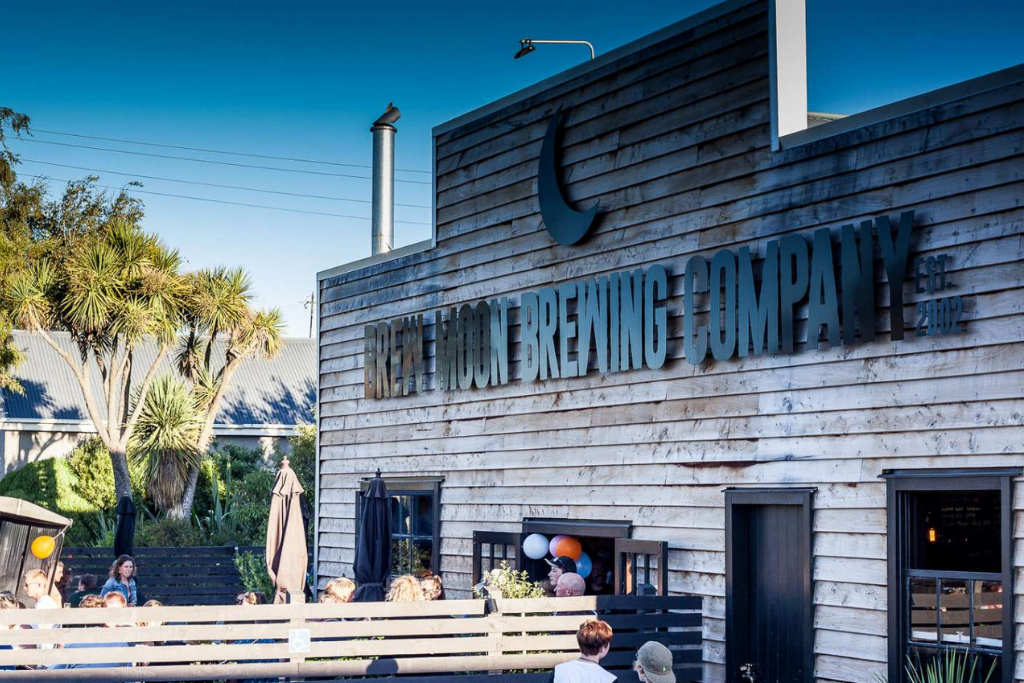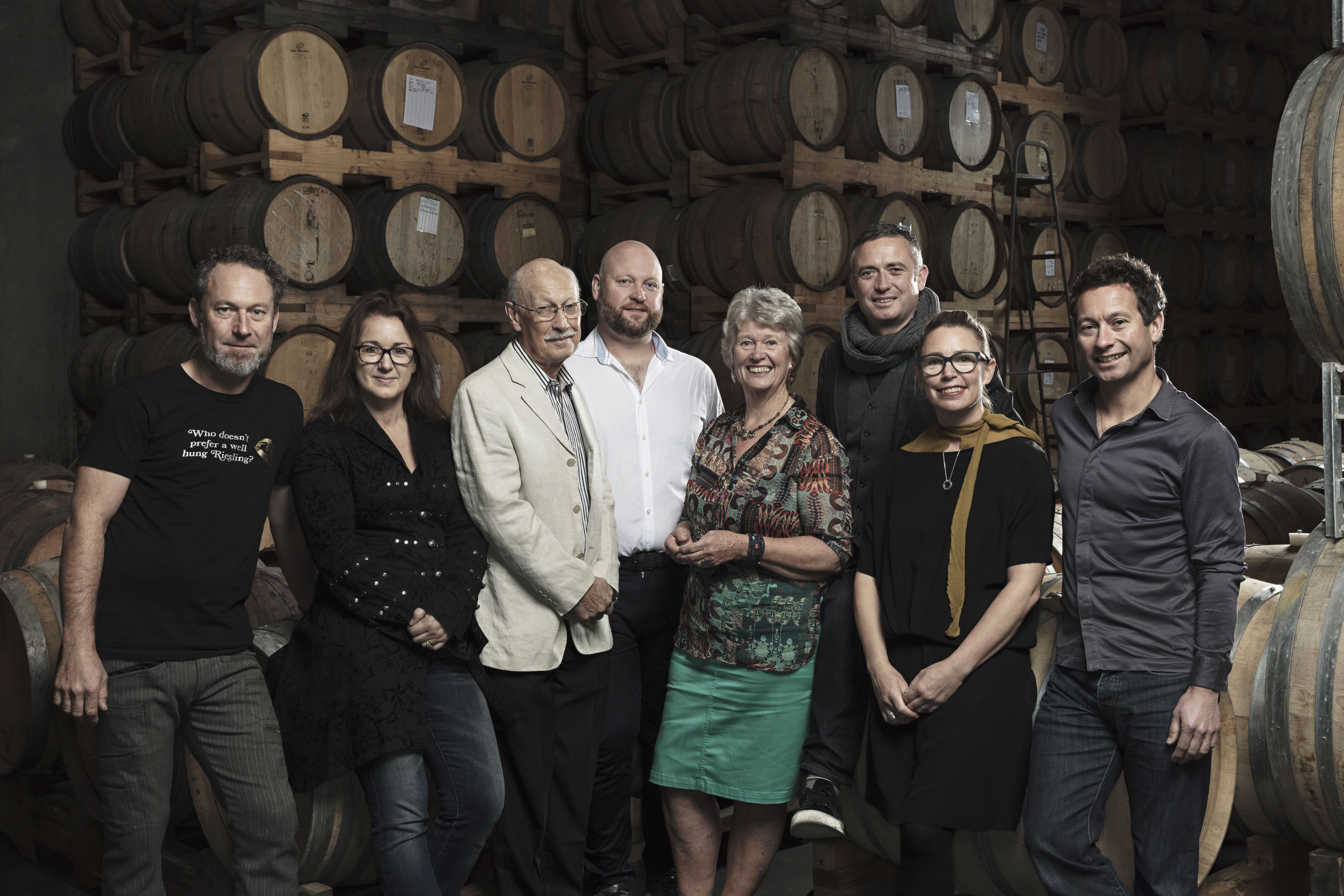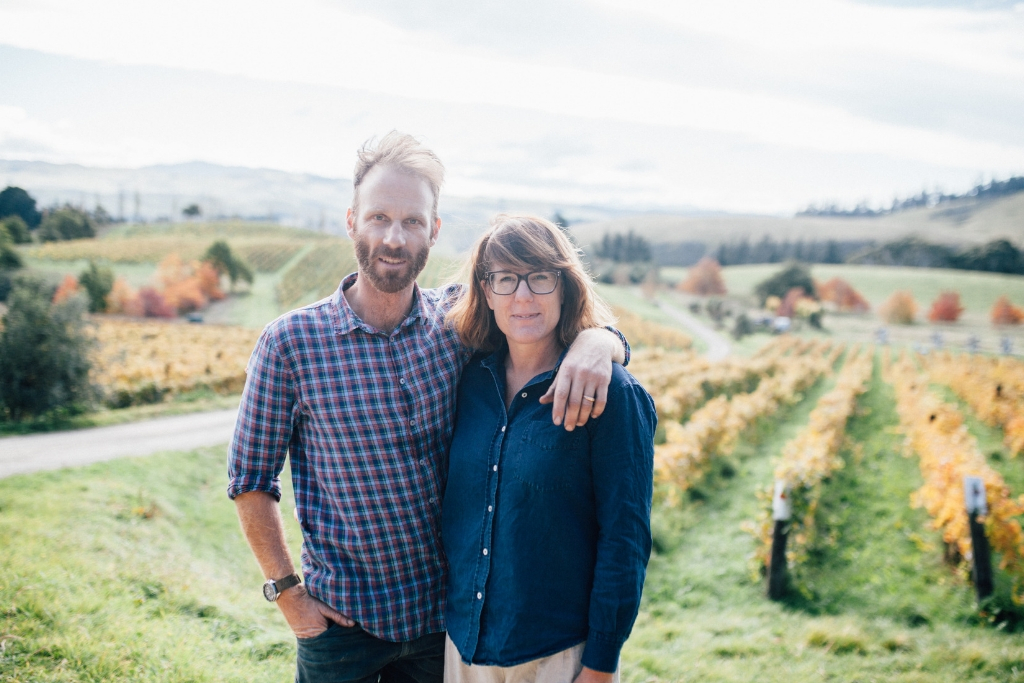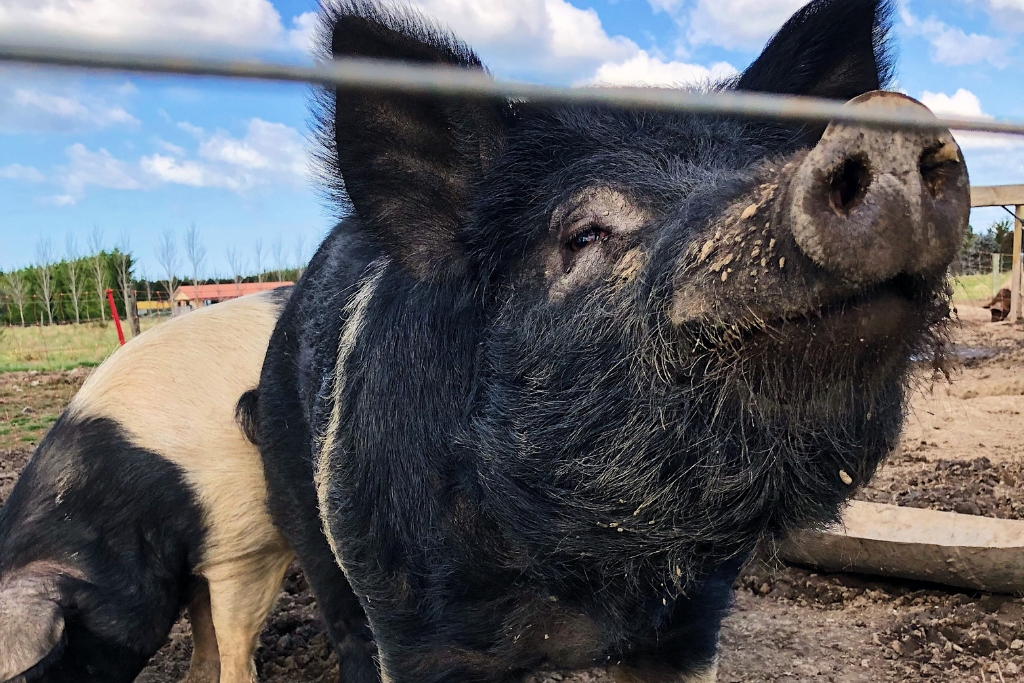What do you think that stems from? Is that from people who have actually been here for a long time? Or is it people finding their place here? What is that connection to the land?
Angela Clifford: I think it’s a combination of people who are from here and then have gone away and traveled around the world, and grown wine in other places, and then have come back and gone wow, what this place has to offer is really unique and really special. And I think there’s sort of that sense of homecoming that’s really important for a lot of people.It’s a really young region, it’s only about 27 years old. Land prices, at least a few years ago, weren’t ridiculous, so it meant that young people could set up sticks and establish vineyards. It has some really unique varieties that do well here, in terms of things like Pinot Noir, and Chardonnay, and aromatics. So, for lots of people that’s a really lovely kind of combo. And there’s always lots of experimentation and sort of this sense of pioneering, which I think we all love. There’s no you have to do things this way. There’s sort of an opportunity to make great discoveries. Whether that’s a piece of vineyard that hasn’t yet been planted, or a vineyard that has been planted, or wild food, or a beach that no one else can get to, there’s this amazing sense of discovery, I think.
How have you seen the region so evolve over the last set of five or ten years. And, second part to that question, is how do you see the modern North Canterbury personality, how would you describe what that is?
Angela Clifford: Yes, a really good question. Quite a tough question really, because when you’re in the middle of it, it’s really hard to see how others perceive you, so all you can do is talk about it from your own perspective. I think it’s evolved hugely. It’s never been an easy place to grow grapes and because of that it means that there hasn’t sort of been that big, corporate large vineyard march into the region, and it’s been left to the crazies. In all senses of the word. So that means that there’s been lots of pushing the boat out and exciting wines and really high quality, and I’ve just seen that get bigger and bigger over the last ten years. Amazingly so. Also, just our sense of self. I think ten years ago we didn’t know where we sat in the world, and we weren’t so confident about what we did and what the quality was like.
But, just over the last ten years, I think internationally North Canterbury wines have attracted a lot of attention. Tiny region. Ridiculously small in the big scale of things, but punching beyond its weight significantly in terms of quality. So that’s allowed us to have a much stronger sense of self. And I love the way that we’ve evolved food alongside our wine. I love that. That just makes us… It’s very convivial and we all sit down around tables together and have meals and laugh and yeah, it’s kind of who we are.
Pinot Palooza: I think that’s the thing that I sort of like is that, the fact that you gave, you have that sort of community element, as you were saying before. Each has its own. One fishes, one hunts, one grows.
Angela Clifford: One wears velvet hot pants.
Pinot Palooza: One wears velvet hot pants, absolutely!
Angela Clifford: It’s a community of unique people, yeah.
So, just say I’ve never been to North Canterbury before, what’s the one thing I have to do when I get here? Aside from come to the food farm and tasting wine!
Angela Clifford: One thing they should do, I think, walk the vineyard trail between Greystone, Mountford, Black Estate, because it gives you a true sense of the valley itself and there’s some beautiful views across to the other side of the valley. And allows you to sort of get of your car and be on foot, and that gives you a much better sense of who we are, I think as well. Yeah.
Pinot Palooza: I always get the feeling that you guys always hide things, there’s always that element of discovery when you get here. Is that sort of something that you think you do deliberately? To hold things close to your chest? I’m always getting the impression there’s things tucked away and hidden. There’s different layers in North Canterbury. Where do you think that comes from? Just the place and the land itself?
Angela Clifford: I just think that we’re not a particularly showy community. We don’t make a lot of noise about our place. We just are in it and I think that sometimes that means that we forget how unique it might appear, or special it might appear, to people from outside of the community. We just live here and it’s part of our lives, and so we go to places like the rocks or the cove, and I mean they’re truly beautiful, incredibly beautiful, but, or the Waipara Gorge, but to us they’re just part of who we are.
We’re not really a tourist town, you know? So that’s really important for us. And the landscape allows itself to have lots of nooks and crannies and that’s because the foothills to the Southern Alps are so close to the ocean. So we have an incredibly diverse geography. Braided rivers. Everything within a really small space.
So, I think with any geography like that it creates a lot of diversity and a lot of spaces, and I think in order to find those spaces you have to come here more than once.
So, why don’t you tell us about Tongue in Groove, what is Tongue in Groove?
Angela Clifford: Tongue in Groove is something that we always wanted to do ourselves as a family. We’ve worked for other wineries and we always knew that we wanted to have some skin in the game and have our own label. So, this was our chance. It’s co-owned with Lynette Hudson, who’s the winemaker, and I guess it’s just an expression, or it’s an extension of us. Wines always feel like our babies. From some of the best vineyards in the region that we have a really close connection with and we think it’s our way of expressing our place. Yeah, that’s what Tongue in Groove is.
And they always sit beautifully on the table alongside food, that’s just fundamental to who we are. Really textural, interesting wines, just like us. That’s all I’ve got to say about that. #mouthfeel
Let’s talk about North Canterbury Pinot Noir. How would you describe, or what’s the personality of North Canterbury Pinot Noir?
Angela Clifford: It’s savory, structured… Complex, really good tannin structure, beautiful driven acidity, particularly if there’s some limestone in the soil. Earthy. Sort of more on that red to mid-dark fruit. It’s got great length, great aging ability.
What about if I ask you to describe it musically? What sort of music would North Canterbury Pinot be?
Angela Clifford: I think it would be something like Ladi6. Quintessentially Kiwi. Just, you know it’s not from anywhere else. It’s definitely from here, but it’s got a luxurianceness. I don’t think that’s actually a word, but now it is. A luxurianceness about it. It’s got generosity. Both in terms of personality and in terms of harmony. I think it just has a beautiful voice that speaks of where it’s from. So for me, that why it’s like Ladi6.
There’s a really special community here that loves to have a good time and we’re notorious for all-night parties, so I think electronica would pretty much sum up how we roll. Little bit of drum bass, just something to keep you on the groove and keep you there for a long time.
Tell us about the food farm, tell us about where we are. What is this place?
Angela Clifford: This is a 16 acre organic permaculture property, which is a CSA, which stands for community supported agriculture. It’s our way of showing people that you can feed a community. We feed about 12 families from this property. We grow all of our own food, about 60 different varieties of fruit and vegetables. We have milking cows, meat chickens, egg chickens, ducks, sheep, pigs. We have three children, our best crop to date, we don’t eat them. But they’re a really important part of the system because they work hard.
Yeah, it’s our place to stand, it’s our place to talk about who we are, our place from which to go forth into the rest of the world. We have a really strong sense of ourselves when we’re on this piece of land and it’s really important to us.
Tell us a little bit about the pigs!
Angela Clifford: The pigs. So we have a boar called Jimi Hendrix and a sow called Pjörk. And they have piglets at the moment. Pjörk is a Wessex Saddleback and Jimi is a Hampshire, and they’re a really important part of our farm.
As for the cows, my favorite, my special milking cow, is called Cacao, because she’s kind of chocolate-colored, and her beau is a bull called Ghana, because that’s where cacao comes from. Ghana. And then we also have another milking cow, which belongs to Kate, a friend of ours, called Lucy the cow. And anyone that knows Spike Milligan and has heard of Badjelly the Witch will know why she’s called Lucy the cow.
As for the other animals, the ducks are Pekin ducks and also Buff Orpingtons, and the chickens are your ordinary, everyday Red Shaver laying chicken, but also some Plymouth Rocks, the black and white stripey ones. And we also grow Cobb 500’s for meat, as well.
Tell us a little about why you have your meat chickens, what makes them different to say, ones you get in the supermarket?
Angela Clifford: Ah, there’s just no comparison. Really. They’re a different animal. We feel really strongly about animals having good lives, nothing on the food farm goes [inaudible 00:15:36] We grow it, we raise it, we butcher it, we dress it, we do all of that here. That’s a really important part of who we are. So, our chickens live a wonderful free-range life. They eat good organic food and scraps from our table. They’re looked after and they’re an important source of food for us.
A normal supermarket chicken is slaughtered nowadays at about 7-8 weeks, and ours are anything from 14-20 weeks depending on when they’re taken out of play.
Pinot Palooza: And what’s the difference in size-wise, or…
Angela Clifford: Massive difference. Size definitely, but they’re just much more slow-growing and that means that they’ve got a chance to develop more flavor, and so for example their bones are just, are hard, they’re not bendy at all. With time, you get flavor and texture in the meat. It’s a much darker meat than a supermarket chicken would be.
Pinot Palooza: So eat better chickens is what you’re saying.
Angela Clifford: Indeed!







